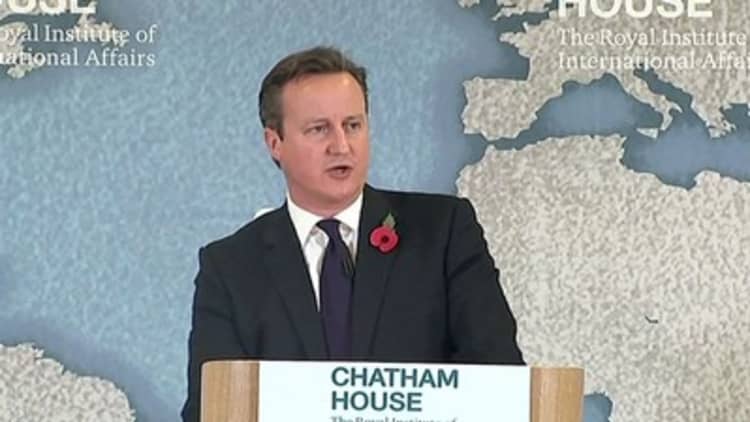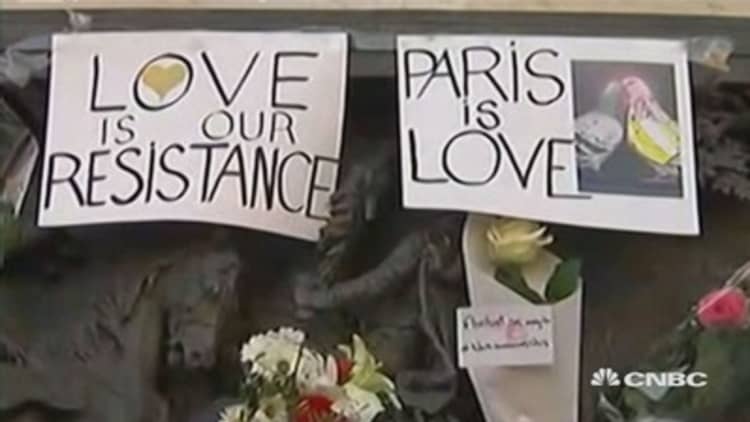
David Cameron will announce plans on Monday to recruit 1,900 intelligence and security staff, aimed at countering the threat of Isis attacks on Britain's streets and on flights operating out of UK airports.
In what is thought to be the biggest increase in British security operations since the July 7 London terrorist attacks in 2005, the prime minister will also announce a review of security at airports around the world used by British travellers.
Britain and the US have put in place new security measures at a number of potentially vulnerable airports in recent months but Mr Cameron, attending a G20 summit in Turkey, will announce a review to assess whether they go far enough.
There would be more advice, training and equipment provided for local authorities at such airports. The British government is convinced that a Russian Metrojet flight was downed last month by a bomb placed on the aircraft at Sharm el-Sheikh airport in Egypt.

The proposed enhancement of British security includes a promise of a 15 per cent increase in staff for the spy agencies, MI5, MI6 and GCHQ, to respond to tackle terrorism and cyber attacks.
The prime minister will set out the plans as the government finalises its five-year strategic defence review, which will be published next week ahead of chancellor George Osborne's public Spending Review.
Mr Cameron and Mr Osborne will frame the two packages as being about enhancing Britain's "security", whether from the threat of global terrorism or against the risk of a future economic crash.
The chancellor will argue that by cutting spending elsewhere, notably on welfare, he has found the cash needed to boost Britain's defences, whether in intelligence, the military or counter-terrorist policing.
Mr Cameron, who will make a speech on global security in the City of London tonight, will say: "I am determined to prioritise the resources we need to combat the terrorist threat.
"This is a generational struggle that demands we provide more manpower to combat those who would destroy us and values."
The G20 summit at the Turkish Mediterranean resort of Antalya has been dominated by the Paris attacks and world leaders discussed the terrorist threat last night at a working dinner.
More from the Financial Times:
Paris attacks: France in air strikes on Isis stronghold in Syria
Paris attacks: How a 'really great guy' became a suicide bomber
A proclamation against Isis, the party of death
British security services have embarked on a big operation over the past two days in response to what security analysts have said is a significant shift in the tactics of the Islamic State of Iraq and the Levant (Isis).
Screening checks at ports had been increased and there will be extra police at the borders and on the streets, Theresa May, home secretary, told the BBC's Andrew Marr programme. The security services had been preparing for an urban attack similar to the events in Paris since the terror attacks in Mumbai in 2008, she said.
Ms May chaired a meeting of the government's emergencies committee on Sunday to consider "in part the lessons to be learned" from the French tragedy, she said.
Lord Carlile, a Liberal Democrat peer and the government's former independent terrorism legislation reviewer, called on Ms May to fast-track planned surveillance legislation in response to the Paris attacks.
The Investigatory Powers Bill should be "expedited", he told the Mail on Sunday newspaper.
The bill, which has been dubbed a "snooper's charter", was necessary to prevent acts of terrorism, British security forces have argued.
Among its most contentious powers is the requirement for UK tech companies to keep internet records for up to a year. Privacy campaigners and tech businesses have expressed doubt about the range of powers the government is seeking to acquire. But when introducing the legislation to the Commons earlier this month Ms May insisted that it included some concessions to its critics.
Hilary Benn, shadow foreign secretary, said Labour supported the bill, although it had some concerns over judicial oversight of the powers to be given to the security forces.


